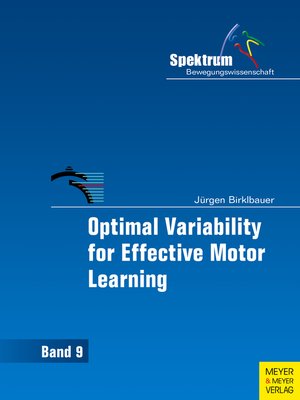Optimal Variability for Effective Motor Learning
ebook ∣ A Theoretical Review and Empirical Work on Movement Variability · Spektrum Bewegungswissenschaft
By Jürgen Birklbauer

Sign up to save your library
With an OverDrive account, you can save your favorite libraries for at-a-glance information about availability. Find out more about OverDrive accounts.
Find this title in Libby, the library reading app by OverDrive.



Search for a digital library with this title
Title found at these libraries:
| Library Name | Distance |
|---|---|
| Loading... |
This thesis addresses different manifestations and practical implementations of movement variability in respect to their beneficial effects on movement coordination and learning. The focal point of this topic is formed by the comparison between the contextual interference paradigm and the differential learning approach, representing two variable practice strategies found to improve motor learning performance under certain conditions. The theoretical backgrounds and empirical findings of each approach are thoroughly reviewed in the first part of this work. These theoretical concepts, and their resultant practical training approaches, arrive at the notion of an optimal magnitude and structure of movement variability that should be encouraged during practice. The second part of this work presents a parallelgroup study designed to contrast the effects of a high contextual interference and schema-based practice regime with two variants of differential training on the adoption of two indoor hockey skills in beginners.







